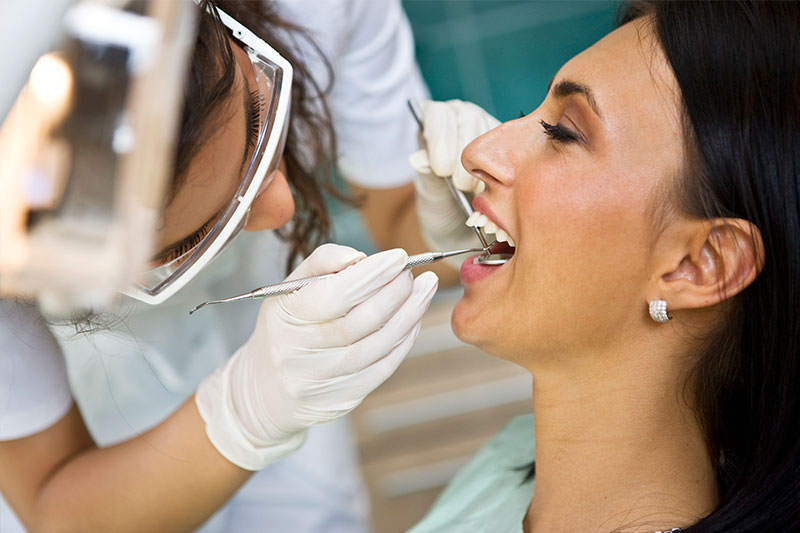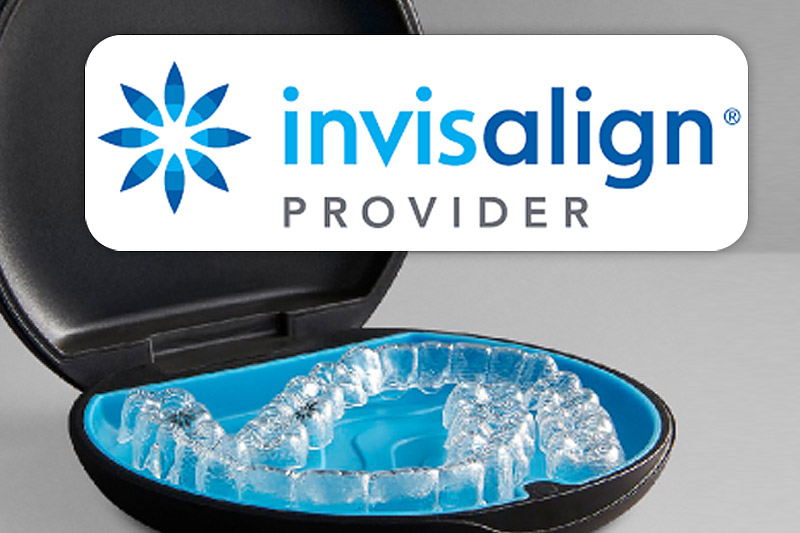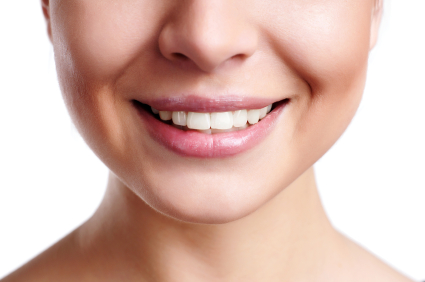Category: Dental Exam and Cleaning
Types of Dental Cleanings in Watertown MN
Scheduled professional teeth cleaning is a key component of your preventative dental care to maintain optimal dental health and minimize the risk of gum disease and tooth decay. The American Dental Association recommends that dental cleanings be performed every six months by a dental practitioner. However, some people may require more frequent cleanings depending on their risk factors.
Your dentist may recommend one of the following types of dental cleanings after examining your teeth and gums:
1. Prophylaxis (prophy)
This is commonly referred to as “teeth cleaning”, and involves the removal of accumulated plaque from your teeth, which cannot be removed by regular brushing at home. The process also includes tooth polishing, and should be done every 8 to 16 weeks. Generally, a good candidate for prophylaxis should have firm, pink gums with no bleeding or gum pockets over 3mm.
2. Full Mouth Debridement
If your teeth are not professionally cleaned for more than a year, your teeth may have heavy plaque and tartar (calculus) build-up. In such a case, regular prophylaxis may not be sufficient. So your dental professional may recommend full mouth debridement using hand tools and a micro-ultrasonic scaler to remove the plaque and calculus from your teeth and gums, and restore the health of your mouth.
3. Scaling and Root Planing
Commonly referred to as “deep cleaning”, this procedure is usually recommended for patients who exhibit signs of periodontal disease, such as deeper gum pockets (over 3mm), inflammation and bleeding gums, accumulation of plaque and tartar below the gumline, and/or loss of bone tissue supporting the teeth.
4. Periodontal Maintenance
Following treatment for periodontal disease through scaling and root planing or periodontal surgery, your dental professional may recommend this specialized cleaning every 8 – 12 weeks as part of your periodontal treatment follow up to reduce the risk of gum disease recurrence.
Schedule Your Dental Cleaning Today
The right type of dental cleaning in Watertown MN will be determined by your dental professional depending on the clinical condition of your teeth and gums, as well as your risk and history of periodontal disease and treatment. Please visit your dentist to discuss your cleaning needs today.
Dental Cleanings Near Me, Watertown MN
While many dental procedures can be dreadful, teeth cleanings are easily tolerated by most people because they’re not only simple and painless, but also an important part of maintaining your long-term oral health. Ideally, dental cleanings should be performed every 6-12 months to prevent the buildup of plaque and tartar that can cause oral problems such as bad breath, cavities, gum disease, loose teeth, and so on. But your dentist may recommend shorter intervals if you’re at greater risk due to pregnancy, your lifestyle habits, or your general health.
So what exactly happens during a regular dental cleaning?
1. Tartar and Plaque Removal
The actual teeth cleaning process involves the use of specialized tools, such as scalers to remove plaque and calculus from the surface of individual teeth, between the teeth, and around the gum line. This step may take longer if it has been a long time since your last cleaning.
2. Polishing
When all the plaque and tartar has been removed from your teeth, the hygienist will use a special brush with a soft rubber cup. This not only removes any surface stains, but also makes your tooth surface smooth and shiny to make it harder for plaque to form.
3. Expert Flossing
This step helps to thoroughly clean the area between your teeth to remove any leftover plaque and toothpaste from the previous steps.
4. Rinsing
The dental hygienist uses a mouth rinse with liquid fluoride to remove any debris and clean your mouth.
5. Fluoride Treatment
As the final step, your dental hygienist may apply flavored fluoride by putting it in flexible trays that are then placed over your teeth for 30 seconds. This helps to strengthen your teeth and enhance the protection against plaque and calculus.
Following the cleaning, your mouth may feel fresher and your teeth appear brighter. This is because teeth cleaning helps to prevent and treat gum disease and maintain tooth health, but also enhance the appearance of your smile. To learn more about what to expect from a routine dental cleaning in Watertown MN, please contact our office today.
Importance of Dental Exam & Teeth Cleaning Watertown MN
No matter how diligent your at-home oral care routine is, harmful bacteria can still hide in your mouth in places that are hard to reach with regular brushing and flossing. After some time, the accumulated plaque and tartar can pose serious risks to your oral health and even affect your overall health if the bacteria spreads from your mouth to various body tissues. As such, it should be removed by a dental professional using specialized oral cleaning tools at a recommended interval.
Bacteria Growth in Your Mouth
The warm and moist environment in your mouth is very hospitable for the growth of bacteria, which manifests as:
- Plaque – the biofilm formed by bacteria colonies living in your mouth. It is responsible for producing acid that can wear your teeth causing cavities and/or damage gums if not continuously removed by regular brushing
- Tartar or calculus – forms when plaque is not removed properly, causing it to calcify and mineralize into a hard substance that attracts more harmful bacteria. Calculus can only be removed during dental cleanings using specialized tools.
Dental Cleanings Prevent Gum Disease
Bacteria in your mouth can accumulate to a point where it becomes active and destructive, resulting in gum infection. The first stage of gum infection is known as gingivitis, and is characterized by gum inflammation, swelling, and reddening. Due to sensitive gums, you may also notice some blood on your toothbrush or when rinsing your mouth after brushing. Fortunately, gingivitis can be successfully treated with professional dental cleaning and an improved at-home oral care routine.
If there are no interventions, gingivitis can advance to a more serious case of gum disease known as periodontitis or periodontal disease. It affects the foundation of your teeth – the bone tissue connecting your teeth to the jaw. If not treated promptly, periodontitis can cause severe bone loss that loosens your teeth with some even falling out. Though it’s irreversible, dental professionals can help you manage the symptoms and improve your oral health.
Schedule Your Dental Cleaning Today
Your dentist will examine your teeth and gums to determine the best type of dental cleaning in Watertown MN to improve your oral health and reduce the risk of advanced gum disease and cavities.
Teeth Cleaning & Dental Exams in Watertown MN
Dental cleaning is a simple, painless, and non-invasive preventive dental procedure that seeks to reduce the risk of dental issues such as cavities, gum disease, and bad breath by removing built-up plaque and tartar. Patients often experience some mild vibrations, cooling mist of liquid, and a bit of pressure during scraping, though this doesn’t cause any discomfort. On the contrary, the feeling can be quite satisfying in knowing that you can keep enjoying your healthy teeth and smile for longer.
Ideally, dental cleanings should be performed every six months, but your dental hygienist may recommend shorter intervals if you’re at greater risk due to pregnancy, your lifestyle habits, or your general health. Moreover, if you have gum disease, your dental hygienist may recommend deep scaling – as opposed to regular dental cleaning – to remove plaque from your tooth roots as well.
Generally, the first step before any dental cleaning is an examination of your mouth. The dental hygienist needs to physically check your teeth, gums, tongue, and the entire mouth for any concerns using a small mirror. If there are no problems, then the procedure for dental cleaning may be as follows:
1. Plaque and Tartar Removal: A scaler is used to remove plaque and calculus from the surface of individual teeth, between the teeth, and around the gum line. This step may take longer if it has been a long time since your last cleaning.
2. Polishing: A high-powered brush with a soft rubber cup and gritty toothpaste helps to gently scrub and polish your teeth. This not only removes any surface stains, but also makes your tooth surface smooth and shiny to make it harder for plaque to form.
3. Expert Flossing: This step helps to thoroughly clean the area between your teeth to remove any leftover plaque and toothpaste from the previous steps.
4. Rinsing: The dental hygienist uses a mouth rinse with liquid fluoride to remove any debris and clean your mouth.
5. Fluoride Treatment: As the final step, your dental hygienist may apply flavored fluoride by putting it in flexible trays that are then placed over your teeth for 30 seconds. This helps to strengthen your teeth and enhance the protection against plaque and calculus.
To learn more about what to expect from a Cleaning and Exam in Watertown MN procedure, please contact your dental office today.
Dental Check Ups & Teeth Cleaning Near Me, Watertown MN
Many people today know about the importance of oral health and how it affects your overall health. Optimal oral hygiene requires a combination of proper and consistent daily oral hygiene practices at home and routine professional dental cleanings. This helps to protect your teeth from decay and keep the gums healthy, while keeping your smile bright.
However, one thing that may not be clear is why the American Dental Association recommends dental cleanings every six months. Generally, brushing your teeth twice a day and flossing every day should help to remove most of the harmful bacteria from your teeth and mouth. But the small quantity of bacteria that remains may still pose a threat to your oral health over time, if it’s not removed.
Some of the risks include:
- Excessive tooth wear and cavities from the acid produced by plaque
- Bad breath from improper teeth cleaning
- Teeth discoloration from the colored foods you consume and calcification and mineralization of plaque in the form of tartar or calculus, which attracts more harmful bacteria
- Minor gum infection or gingivitis, which is characterized by gum inflammation, swelling, and reddening. Due to sensitive gums, you may also notice some blood on your toothbrush or when rinsing your mouth after brushing.
- Advanced gum infection – If there are no interventions, gingivitis can advance to a more serious case of gum disease known as periodontitis or periodontal disease. It affects the foundation of your teeth – the bone tissue connecting your teeth to the jaw.
- Exacerbated health issues – the infection can spread from your mouth to other tissues, making it harder to manage other conditions such as diabetes, heart disease, and dementia
Cleanings for Optimal Oral Health
Fortunately, most of these problems can be successfully treated or managed with professional dental cleaning and an improved oral care regimen at home. That said, periodontitis is a chronic, progressive, and episodic gum infection. If not treated promptly, periodontitis can cause severe bone loss that loosens your teeth with some even falling out. Though it’s irreversible, dental professionals can help you manage the symptoms and improve your oral health.
Please visit your dentist today to examine the condition of your teeth and gums and determine the best type of dental cleaning in Watertown MN to improve your oral health and reduce the risk of advanced gum disease and cavities.
Do I Need A Deep Cleaning for Teeth? Watertown MN
Dentists recommend different types of dental cleanings to aid in the prevention and/or treatment of dental cavities and/or gum disease. Your dental professional will assess your mouth and recommend the right cleaning for your individual case, as well as the ideal interval for your regular cleanings.
For people with healthy teeth and gums, your dentist may recommend prophylaxis cleanings using fine hand instruments, as well as an ultrasonic scaler and a polishing cup and paste if there are no signs of gum disease. Generally, a good candidate for prophylaxis should have firm, pink gums with no bleeding or gum pockets over 3mm. The American Dental Association (ADA) recommends these cleanings every as part of your preventative dental care to maintain optimal dental health and minimize the risk of gum disease and tooth decay.
Full Mouth Debridement
Prophylaxis should be performed every six months, though some people may require more frequent cleanings depending on their risk factors. In addition, there are some cases where prophylaxis may not sufficiently clean your teeth. If you haven’t been to the dentist in more than a year, heavy plaque and tartar (calculus) may build-up on your teeth.
A full mouth debridement using hand tools and a micro-ultrasonic scaler can be recommended to remove the plaque and calculus from your teeth and gums, and restore the health of your mouth. This procedure is typically performed before an oral examination and diagnosis to ensure good visibility of the actual condition of your mouth
Scaling and Root Planing and Periodontal Maintenance
If you’re suffering from gum disease, your dentist may recommend deep cleaning, which is also known as scaling and root planing. This procedure is for patients who exhibit signs of periodontal disease, such as deeper gum pockets (over 3mm), inflammation and bleeding gums, accumulation of plaque and tartar below the gumline, and/or loss of bone tissue supporting the teeth.
Following your treatment for advanced gum disease, which is a chronic condition, your dentist will recommend periodontal maintenance, which is a specialized cleaning that should be done every 8 – 12 weeks as part of your periodontal treatment follow up to reduce the risk of gum disease recurrence.
Schedule Your Dental Cleaning Today
Receiving dental cleaning is a great way to keep your teeth and gums healthy as a preventive treatment, or as a treatment for gum disease. Please visit your dentist to discuss your dental cleaning in Watertown MN today.
Dental Cleanings & Checkup in Watertown MN
At your six-month dental checkup, your dentist should perform dental cleaning as a preventive procedure to maintain healthy teeth and gums. Professional teeth cleaning is necessary to remove accumulated plaque and tartar from in between your teeth and gums, which may be responsible for various oral issues such as cavities, gum disease, bad breath, oral cancer, and so on.
During your routine dental visit, which should be every 6 – 12 months, your dental hygienist will first examine your teeth before cleaning them. The examination involves physical assessment of your teeth, gums, tongue, and the entire mouth for any concerns using a small mirror. If there are any noticeable problems, the dental hygienist will consult the dentist to determine whether it’s safe to proceed with the cleaning. But in some cases, it may be necessary to first clean your teeth and then perform the examination in order to obtain an accurate diagnosis. Your dental professional will determine the right sequence for your specific case.
What to Expect
Routine dental cleaning takes about 30 minutes depending on how long it has been since your last cleaning. This is because plaque will continuously calcify and mineralize on the surface of your teeth to form tartar. During this time, the dental hygienist will:
- Use a scaler to remove plaque and tartar from the surface of individual teeth, between the teeth, and around the gum line.
- Polish the teeth using a high-powered brush with a soft rubber cup. This not only removes any surface stains, but also makes your tooth surface smooth and shiny to make it harder for plaque to form.
- Perform professional flossing in order to thoroughly clean the area between your teeth to remove any leftover plaque and toothpaste from the previous steps.
- Rinse your mouth using a solution containing liquid fluoride to remove any debris and clean your mouth.
- Apply flavored fluoride by putting it in flexible trays that are then placed over your teeth for 30 seconds. This helps to strengthen your teeth and enhance the protection against plaque and calculus.
Schedule Your Appointment
While many dental procedures can be dreadful, teeth cleanings are easily tolerated by most people because they’re not only simple and painless, but also an important part of maintaining your long-term oral health. To learn more about what to expect from a routine dental cleaning in Watertown MN, please contact our office today.
How a Routine Dental Exam Can Prevent Severe Dental Issues | Watertown MN
Tooth decay, gum disease, bad breath, and other oral problems are caused by the accumulation of bacteria-harboring plaque and tartar. Regular brushing and flossing are not enough to remove all the plaque hiding in hard to reach areas. Fortunately, a routine dental exam and professional teeth cleaning can help to get rid of the disease-causing bacteria and in the process, prevent most issues from arising in the first place, or to stop them in their earliest stages before they become severe and expensive to treat.
Teeth cleanings are usually done together with comprehensive dental exams. In most cases, dentists are able to detect potential problems before you’re able to see or feel them. With regular preventative dental appointments for professional cleanings and exams, you can successfully stave off gum disease and decay, as well as to detect the early stages of oral health problems for timely intervention before they become severe, painful, uncomfortable, and expensive to treat.
Some of the things you can expect from any appointment include:
- Oral Examination – the dentist examines your teeth/gums/mouth for existing cavities, worn dentition, damaged fillings or other restorations, gum disease, and other problems
- Discuss Your Dental Goals – After examining your mouth, the dentist will recommend the necessary treatments to address any urgent problems depending on the health of your mouth. In addition, the dentist will ask you a few questions about your goals or expectations in terms of improving the function or aesthetic of your smile.
- Treatment Planning – Based on your goals, your dental health, and the results of your examination, the dentist will come up with an appropriate treatment plan that addresses your unique dental needs and discuss it with you. In many cases, there are multiple ways to address any specific issue (fillings or crowns; bridgework or partial denture), so it’s important that you ask questions for clarification and to make an informed decision towards achieving your dental goals.
Schedule Your Appointment Today
Your natural teeth should last a lifetime, but only if you take good care of them. This requires a good at-home dental care routine and regular dental exams and professional cleanings. Call your dentist in Watertown MN today to get back on track with your oral health.
Cost of Dental Exam & Teeth Cleaning in Watertown MN
A dental exam and professional cleaning are quite inexpensive, and should be performed regularly as recommended by dental professionals, every six months, to ensure your optimal oral health.
The cost of prophylaxis or dental cleaning partly depends on the age of the patient, with children possibly having a different rate. Primary teeth in children are also prone to stains, plaque, and calculus, which means that professional cleaning is also important for their oral health.
Associated Costs
To determine whether deep cleaning is necessary, that is scaling and root planing below the gumline, x-ray may be necessary to assess the extent of periodontal disease. That said, you don’t necessarily need to incur the extra cost of X-rays to go through a preventive procedure like deep cleaning.
Your dentist will determine which of these preventive procedures are necessary based on your dental exam, after which they will be done in a single appointment together with your dental cleaning.
Paying for Dental Cleaning
Most people with dental insurance are fully covered for up to two cleanings per year, as well as X-rays and a dental exam for new patients. For additional preventive visits, perhaps due to pregnancy, smoking, or other condition, you should reach out to your provider to determine whether they will cover the cost fully or partially. Combined with a proper at-home oral care routine, these visits help you maintain optimal dental health, reducing the risk of tooth loss and expensive dental procedures.
Schedule your dental exam by contacting your dentist in Watertown MN today!
What is an Oral Examination? | Watertown MN
An oral examination is done by your dentist or dental hygienist to collect information about your oral health. The material collected from your exam depends on factors such as:
- Whether you’re a new or returning client
- Length of time since your last dental checkup
- Whether your visit is due to a specific dental condition or ongoing treatment
Dental hygienists must perform the oral evaluation before teeth cleaning, as it may reveal that you need a full-mouth debridement (cleaning above and below the gums), as opposed to standard teeth cleaning of the exposed part of the teeth (above the gumline). During a routine oral evaluation, you can expect:
During the checkup, the dentist will:
- Inspect the teeth for signs of decay
- Determine the need for tooth repair, such as fillings or crowns
- Check gums for any inflammation or bleeding and measuring your gum pockets
- Review x-rays of your teeth to check for internal tooth damage or weakening
- Depending on the health of your gums, the hygienist may need to inspect your roots for abnormalities. If you’re suffering from bad breath (halitosis), then gingival irrigation may be necessary to remove foot debris and accumulated bacteria.
- Check for signs of certain medical conditions and diseases, such as nutritional deficiencies, diabetes, hormonal irregularities, and so on, and recommend the appropriate action to help manage them and correct the problem.
During the oral evaluation, you can ask your dentist about any medical or financial concerns you may have.
Do you need X-rays?
X-rays are not necessary during routine dental cleaning. But your dentist may recommend them to assess the extent of decay inside or between affected teeth. Depending on the results, you may need to schedule for scaling and root planing in addition to teeth cleaning.
The types of dental x-rays used include:
- A bitewing
- An FMX
- A periapical radiograph
- Panoramic radiograph
The early detection of tooth decay and other problems can save time, money, and your teeth. Moreover, six-month dental checkups and cleaning will help to maintain your beautiful smile. Schedule your oral examination with your dentist in Watertown MN today to get started.

New Patient Exam Xrays and Regular Cleaning $67
Includes consultation, exam, and x-rays. In the absence of periodontal disease. New Patients Only
Make Appoinment
Invisalign
With advances in dental technologies, it is now possible to straighten your teeth discreetly without the use of traditional metal braces.
Learn more








